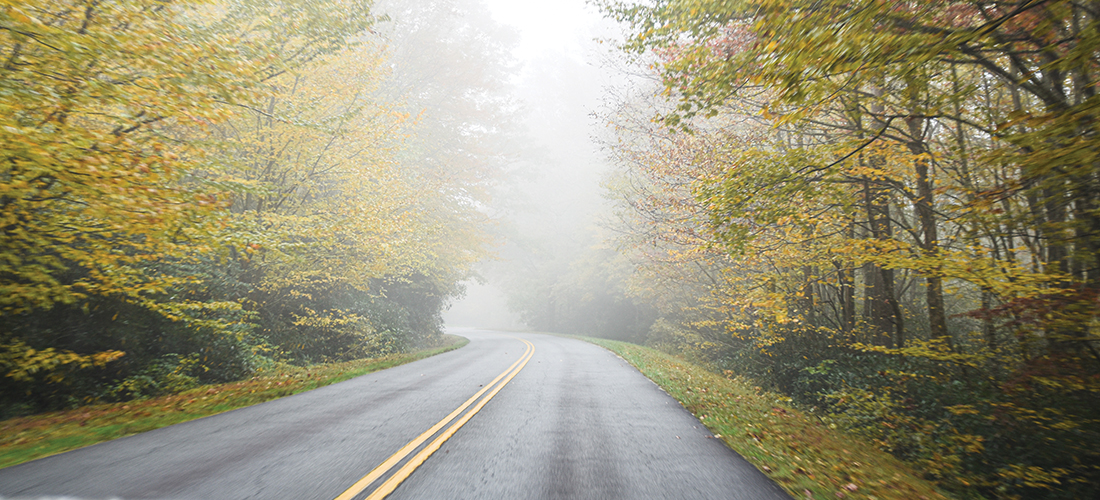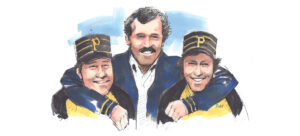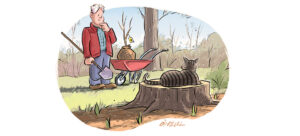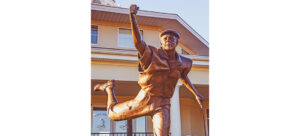
How Southern Am I?
The latitude changes, the attitude doesn’t
By Bill Fields
I can hear traffic on Interstate 95 from where I live. The cars and trucks are far enough away that the noise usually doesn’t annoy — you hear it, but you don’t. I became part of the automotive Muzak not long ago, heading down South, as I’ve done many times over decades, 620 miles from home to home, even if the latter doesn’t have four walls and a roof.
Thanks to cataract surgery I was seeing great — I would have been a formidable foe in the license plate game if there had been someone in the passenger seat — but my vision of who I am felt clouded.
After almost 35 years in New England, how Southern am I?
I’ve asked myself this question before, yet it seemed more acute during this journey. Near the tail end of a year when so many considered so much, it was natural to ponder the reach of one’s roots. Spending nearly two weeks in the South without having a bite of barbecue made it essential.
I sound no different than childhood friends who stayed put. Syllables can still glide together as if there is WD-40 between them, same as when a college roommate from New Jersey made me the front man when we were subletting our apartment in Chapel Hill one summer. Yet I never called my parents “Momma and Daddy,” nor a store a “bidness.”
A work colleague said I was driving “soft” two years ago in downtown Atlanta when I was less than aggressive making a left turn. That critique notwithstanding, I contend anyone who negotiated the toll area of the George Washington Bridge at rush hour in the days when you had to give money to a person is forever hardened behind the wheel.
Commuting up North was no picnic either, in particular those days when a lot of drivers seemed angry at the world not just their boss. Sometimes they were. In the mid-1980s, the first time my mother rode in a New York City taxi, not far from Penn Station after getting off Amtrak’s Silver Star, the cabbie jumped out and ran after a driver who had cut him off.
I associate the South with good manners while acknowledging they sometimes are like one coat applied to an old house that needs more. Others can judge whether I’ve grown more blunt as I’ve grayed, but I’d like to think being nice endures. And I know, after many years as a transplant above the Mason-Dixon Line, that the South has no monopoly on kindness or treating others the right way.
I’m proud of where I’m from, but during a time when there is heightened awareness about racial injustice, it’s jarring to be less than an hour from my hometown and drive past several Confederate flags flying in front yards a couple of curves down the road from the former North Carolina Motor Speedway. The symbols used to be plentiful at the track on race days; they wouldn’t be allowed were it still a NASCAR venue.
I know folks who, for one reason or another, don’t ever go back, don’t long for a taste of the familiar, don’t enjoy a reunion with a place or its people. There are often good reasons for such judgments, but I don’t think I will ever feel that way.
There was a distinct pace where I grew up, and that speed, or more to the point, lack of it, was related to the room we had. Much of what I recall — relish — as Southern simply was small-town. Much has changed, a point reinforced when I visited the Southern Pines cemetery where my parents are buried. It was a warm, clear morning in early November, and Boy Scouts were placing small American flags on the graves of veterans such as my father. As the teenagers did their service, I was alone with my thoughts and the sound of cars on Morganton Road, a noise not of memory but of now, that I heard but didn’t hear. PS
Southern Pines native Bill Fields, who writes about golf and other things, moved north in 1986 but hasn’t lost his accent. Bill can be reached at williamhfields@gmail.com.





